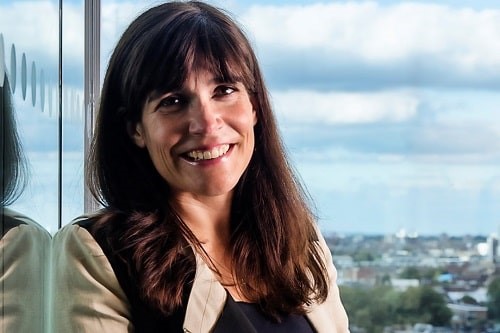The United Nations (UN) published definition of sustainability is: “Meeting the needs of the present without compromising the ability of future generations to meet their own needs.”
Features
Human capital
To understand ‘human capital’ we first need to consider this definition and look beyond the environment when we use the term. In its simplest terms this is about: ‘People, Planet, Profit.’
 Louise Hosking: "Businesses need safe, healthy, engaged workers to thrive."
Louise Hosking: "Businesses need safe, healthy, engaged workers to thrive."
There must be balance in all three for business to thrive and be truly sustainable. Whilst we like to believe health and safety is ‘our top priority’, the reality is it must be a priority value in harmony with these other aspects.
Fundamentally, unless we control consumption we will continue to be unsustainable and become more and more unstable at every level because this model is out of balance.
UN Sustainable Development Goals
The UN Sustainable Development Goals provide the architecture for resolving many of these challenges. To achieve these goals, organisations need to transform current patterns of production, operation and consumption.
The Five Capitals Model expands the concept of ‘People, Planet, Profit’ – these ‘capitals’ interconnect and create a sustainable ecosystem. When we restrict one it affects another.
Sustainable organisations place true value on good work, people and communities – charging a fair rate for a fair job and considering the impact on the planet.
Human capital
This includes things like education, training, skills, health and personal or shared values, such as loyalty and punctuality. Think of the person within a business with the drive, knowledge, passion and the energy to make incredible things happen – now see them as an asset (a value) to the business.
But health and safety performance is not being consistently captured in most financial or public reporting on human capital, so it’s not being given the importance it deserves.
 Large organisations have significant supply chains which span the globe. Without clear and consistent reporting, organisations are not held to account. Photograph: iStock
Large organisations have significant supply chains which span the globe. Without clear and consistent reporting, organisations are not held to account. Photograph: iStock
Large organisations have significant supply chains which span the globe. Some are able to push hazards out from the centre – especially into territories with little or no health and safety state regulation. Without clear and consistent reporting, organisations are not held to account and so may be tempted to exploit workers in the rush for greater profits.
Health and safety professionals have a role to play in creating meaningful evidence-based reports which boards and stakeholders understand. With better reporting comes greater accountability and customers will make informed choices which rewards sustainable business and improves standards. Health and safety becomes a value.
Evidence suggests investments in human capital, including higher education, yield long-term economic rates of return that exceed most standard investments in technology or capital. The more skilled and empowered the workforce, the more productive it tends to be.
Businesses need safe, healthy, engaged workers to thrive – something the investment community is looking at more closely than ever before.
Environmental, social and governance (ESG)
Companies managed with a focus on sustainability will be in a better position to weather adversity because they invest in prevention measures. We’re currently experiencing adverse conditions, so there’s an even greater focus on this, and we have seen ESG financial funds performing well.
Investors want to understand which companies are doing well, and which ones are investing in human capital and their people.
The desire for ethical investment will drive ethical values which creates an interest to understand more about the issues we health and safety professionals care about.
Good governance lasts longer than any government and creates sustainable businesses attuned and in harmony with people, the planet and profits.
Louise Hosking is Director at Hosking Associates
FEATURES

How to mitigate the hearing loss cost escalation tsunami
By Peter Wilson, Industrial Noise and Vibration Centre (INVC) on 06 February 2026
Employers need to adopt the latest and most effective noise risk evaluation and management measures, or face rapidly-rising compensation claims for noise-induced hearing loss at work.

Young drivers and work-related road risk: why employers must act now
By Simon Turner, Driving for Better Business on 06 February 2026
Young drivers have a higher risk of being involved in road collisions due to factors such as their inexperience, so when employing them to drive for work, it is vital they receive the right support to help them grow into safe professionals behind the wheel.

Financial stress: why and how it affects workplace safety
By Chloe Miller, freelance writer on 06 February 2026
Financial worries can lead to cognitive impairment that increases the risk of workplace accidents, so it’s essential employers provide financial education and confidential support for workers who may be struggling with problems like debt and unexpected living expenses.



